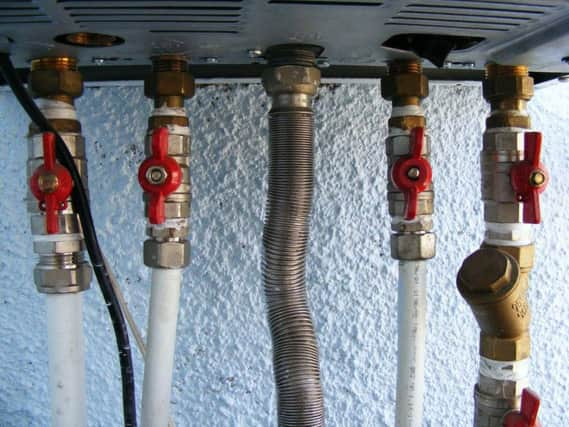How to prepare your home for cold weather - British Gas warns North East folk not to be 'Christmas chancers' as colder weather heads our way


A survey by British Gas shows 77% of people taking part in the North East are already preparing for Christmas with shopping, party planning and even writing Christmas cards well ahead of the big day.
But the energy firm said only 28% of those who took part in the survey had been preparing their homes for cold weather, even though 66% of people said having no heating or hot water would be their worst winter nightmare.
Advertisement
Hide AdAdvertisement
Hide AdBritish Gas engineers were called out more than 32,800 times last winter to help fix broken boilers across the North East and the company said people needed to make sure they weren't overlooking essential tasks to keep their homes warm this winter.
The UK has been hit by four named storms since September and has seen a blast of Arctic air bring bitter Polar winds, snowfall and sub-zero temperatures, and that's before winter officially arrives.
Stephanie Walker, a British Gas engineer who services and repairs boilers in the North East, said: “Nobody wants to be left without heating or hot water – especially if it’s cold outside. We’re always on hand to come to the rescue if something does go wrong, but there are some really simple steps you can take to stop it from happening in the first place.”
According to the survey, failure to prepare for winter could be related to a lack of practical skills in the home.
Advertisement
Hide AdAdvertisement
Hide AdNine in ten (91%) people in the North East would be comfortable sorting out a blocked Netflix or email account, setting up a new phone or re-setting the WiFi, compared with just 19% who would know what to do in the event of a frozen pipe.
Stephanie said: “Investing in your home at this time of year is the best way to keep it warm and working when it matters, but it’s about more than just being warm enough – safety is a critical factor, too."
Here are Stephanie's tips for staying a step ahead of the weather this winter.
1. Maximise the heat:
There’s nothing better than settling down in front of your favourite box set as a family, but before you get too comfortable, think about where your heat sources are. Putting your sofa in front of a radiator may keep the best spot in the house extra toasty, but it will absorb heat that could be warming the rest of the room.
2. Look after your boiler:
Advertisement
Hide AdAdvertisement
Hide AdStay ahead of the weather and make sure your boiler’s working properly before the first frost. British Gas offers a range of Homecare products to protect your boiler, heating, electrics and plumbing, and other companies offer similar schemes. It's worth investigating.
3. Insulate your hot water system:
Stopping heat from escaping doesn’t just save you money. When temperatures drop below zero, it’s important to make sure that the water inside your pipes doesn’t freeze and cause them to burst.
Lagging materials are available from most DIY stores – an easy, cost-effective solution for protecting your water tank and pipes.
4. Be energy smart:
It’s inevitable that our energy use will increase when the heating’s on over winter, but there is a simple way to keep track of how much you’re using – and spending.
Advertisement
Hide AdAdvertisement
Hide AdWith smart meters, you’ll be able to see how much energy you’re using in pounds and pence, helping you to identify where you can make savings during peak energy season.
5. Install a carbon monoxide detector:
You can’t hear it, see it, taste it or smell it, but it kills around 30 people a year. Fortunately, carbon monoxide poisoning is preventable.
Faulty central heating systems are one of the most common sources of carbon monoxide in the home – as well getting your boiler checked once a year, it’s essential to have a carbon monoxide alarm fitted.
The detectors last between five and seven years, so check yours is in date and test it to be certain it’s working. The detectors are available in DIY stores or via British Gas.